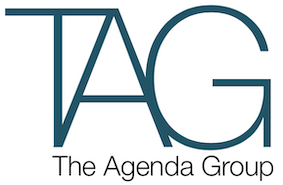Victoria’s productivity commission is ready to serve.
The Victorian Competition and Efficiency Commission describes itself as ‘the Victorian Government’s foremost advisory body on business regulation reform and opportunities for improving Victoria’s competitive position.’
The Commission fulfils its role by:
- 1. Undertaking inquiries into matters referred to it by the Victorian Government
- 2. Reviewing and advising on the economic impact of significant new legislation and regulation and changes in the regulatory burden
- 3. Operating Victoria’s Competitive Neutrality Unit
So at a state level, it’s something of a cross between the ACCC and the Productivity Commission.
At present, according to its own website, VCEC has no inquiries planned or under way.
The terms of reference for an Inquiry into opportunities to increase the efficiency of import and export distribution and logistics chains inquiry had been issued by the previous government on 4 November 2014 (on the eve of the Government going into caretaker mode).  However, VCEC now notifies that the Premier of Victoria, as Minister responsible for the Victorian Competition and Efficiency Commission, has withdrawn the terms of reference and directed VCEC to cease work on the inquiry.
However, VCEC now notifies that the Premier of Victoria, as Minister responsible for the Victorian Competition and Efficiency Commission, has withdrawn the terms of reference and directed VCEC to cease work on the inquiry.
Not that VCEC is idle. It’s currently exercising its regulatory review function through conducting regulatory improvement studies with two Victorian regulators: the State Revenue Office to examine opportunities for consolidating revenue collection functions in Victoria; and the Victorian Commission for Gambling and Liquor Regulation to identify high value opportunities for regulatory improvement. Both these studies are due in May 2015.
Established by the Bracks Government in 2004, previous Labor Governments made use of VCEC across a range of fronts. Inquiries were held into areas as diverse as regional development, regulation of the housing and construction sector, and a review of Melbourne’s metropolitan water retailers.
The Coalition Government also kept VCEC busy, with inquiries into problem gambling, the school system and the feed-in tariff program.
Most notably, in the early months of the Baillieu Government, VCEC was commissioned to undertake an inquiry into a state-based reform agenda. The inquiry identified the key reform areas that the Victorian Government should target to improve productivity, labour force participation and Victoria’s overall economic competitiveness.
The final report, like the Vertigan Report the Baillieu Government commissioned to provide options to reduce the size of government (through contracting out service provision, privatisation, asset sales, etc), was never released by Government.
There is little public guide early in the life of the new Victorian Government as to what VCEC might next be asked to inquire into.
There is no reference to any brief for future VCEC inquiries in the ALP’s 2014 election platform or policy documents.
Bedding down machinery of government changes, delivering on election promises and generating some activity in the first 100 days of office are understandable pre-occupations for the new Government and its ministers in its first few months.
As it lifts its head above this parapet to survey the policy landscape lying before it, the Andrews Government will likely turn to VCEC in some form to assist with reviews of public sector performance and areas for reform and cost saving.
Given the challenges Victoria faces in coming years in sustaining employment levels as the local auto manufacturing sector winds down, there is clearly a role for VCEC to play in ensuring the state has the right settings to support existing industry, attract investment and drive productivity.
